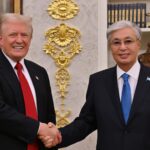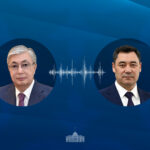The attack on the airport in Makhachkala has raised eyebrows among many experts, particularly Russians. However, political analyst Marat Shibutov offers what he considers a fairly simple explanation on his Telegram channel.
«Many people don’t understand how the Russian authorities could have overlooked various risks and threats, whether from Ukrainian propaganda or Dagestani militants. I’ll explain with a simple example.
Suppose the Department of Kazakhstan and Central Asia at the Presidential Administration of the Russian Federation for Interregional and Cultural Relations with Foreign Countries needs to strengthen Russia’s soft power in Kazakhstan. Here, they face a choice — either work hard, reporting very unpleasant things to their superiors, or create a feedback loop. Typically, the latter is chosen.
In Moscow, they select various copywriters and create Telegram channels, something like this:
- Successor
- Shanirak
- Eastern Express 24
- Eastward View
- Akhmetov
- Periscope.kz
- KazBrief
- New Turkistan Gazette
- Neighbors | Central Asia
- Almaty Hooligan
- Asian Express
- AsiaToday
- Baraeva
The channel admins write about regional news in a pro-Russian manner, clumsily pretending to be locals, following the talking points provided by the department’s employees.
What happens next? The Russian Embassy in Kazakhstan compiles the posts and turns them into overviews and reports about what’s happening in Kazakhstan and its media sphere. The titles might be something like ‘Telegram channels express outrage over the opening of the NATO center in Almaty’ or ‘Telegram channels criticize the statement by the well-known Russophobe Shibutov, who called Defense Minister Shoigu a cuckold.’ These reports are sent to the Ministry of Foreign Affairs.
And where do these reports go from the Ministry of Foreign Affairs? That’s right, they go to the Department of Kazakhstan and Central Asia at the Presidential Administration of the Russian Federation for Interregional and Cultural Relations with Foreign Countries. There, they are formally processed, and Igor Venidiktovich Maslov presents them to Dmitry Kozak during a briefing, or even to Yuri Viktorovich Ushakov. They familiarize themselves with the materials and issue their directives.
Then the cycle repeats. Of course, with each turn of this wheel, the Russian leadership’s understanding of the situation in Kazakhstan becomes increasingly detached from reality.»
Please note that this text includes a hypothetical scenario presented by the author.









